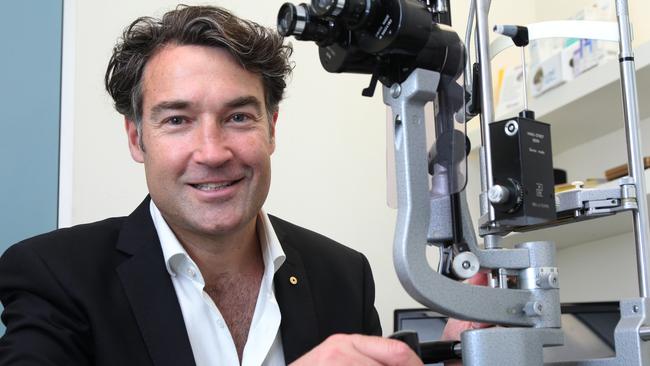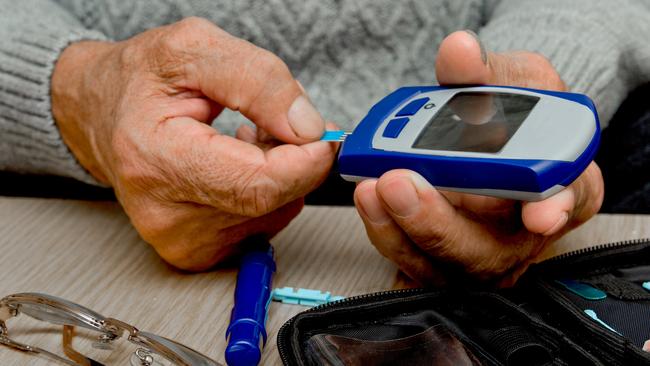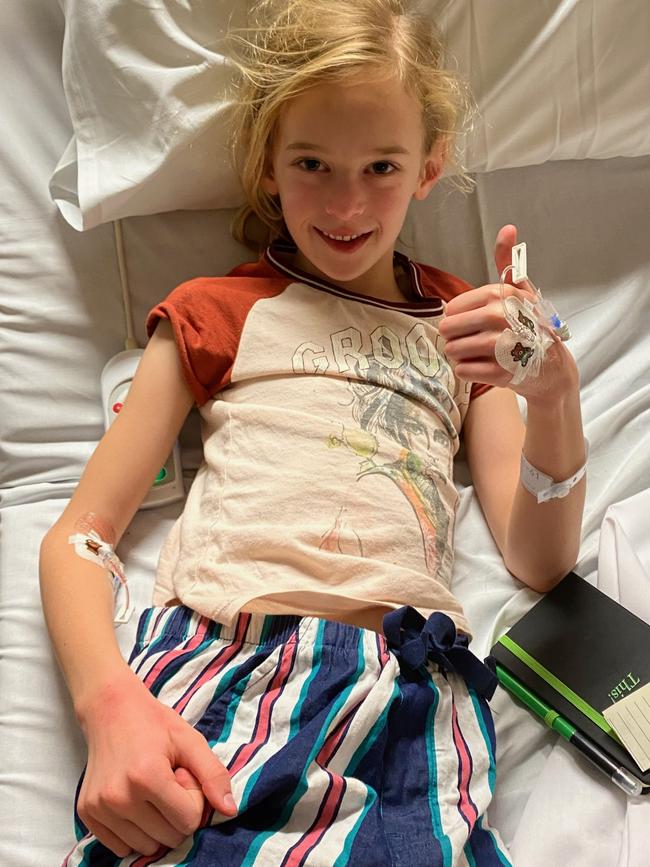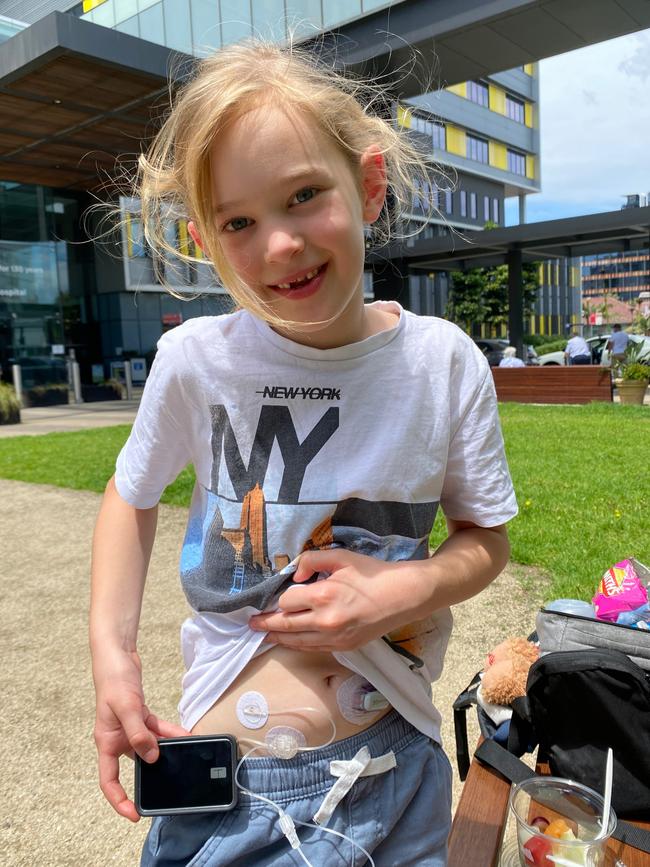Dr James Muecke welcomes new 10-year Australian Diabetes Strategy
A new 10-year plan to tackle diabetes confirms type 2 diabetes can be reversed and a review of our current dietary guidelines may hold the key.

NSW
Don't miss out on the headlines from NSW. Followed categories will be added to My News.
Everyone with type 2 diabetes should be given a low-carbohydrate diet, which could put their disease into remission — and reverse Australia’s looming health crisis.
Australian of the Year James Muecke has been campaigning for this controversial step, and now his fight has been given a huge boost by the Australian Diabetes Strategy, set to be released on Sunday.
Type 2 diabetes cases have been growing at an unsustainable rate and are threatening to overwhelm our health system.

Dr Muecke, one of the experts who contributed to the new strategy, said health authorities had been slow to acknowledge the growing body of science that proves type 2 diabetes can be reversed.
Now the seven-point strategy has an emphasis on prevention and calls for dietary advice to “align with the best available and most up-to-date scientific evidence”.
This is a significant shift from the previous 2016-2020 strategy — and for the first time the strategy also confirms type 2 diabetes can be reversed.
“We have to get away from the low-fat, high-carbohydrate mantra that the current guidelines still have,” Dr Muecke said
“We have remission in this document for the first time.
“The thing about type 2 diabetes is it is a largely avoidable, man-made dietary disease related to our excessive consumption of sugary drinks and processed products.”

Diabetes, which affects one in 20 Australians, is a chronic disorder caused by the body’s inability to produce insulin, the hormone produced by the pancreas to regulate blood glucose levels.
While type 1 diabetes is an auto-immune disorder that attacks cells in the pancreas, type 2 is the most prevalent, making up around 85-90 per cent of all cases and growing year on year. type 2 diabetes is heavily lifestyle-related, as well as having a genetic component. Some races, including Indigenous Australians, are more susceptible.
“Patients who develop type 2 diabetes, until earlier this year they were told this is a progressive disease, you’re most likely to need medication and insulin,” Dr Muecke said.
“But it is not, it doesn’t have to be. There is the opportunity to put type 2 diabetes into remission.”
Low-carbohydrate diets, very low-calorie diets, and bariatric surgery had been clinically proven to reverse type 2 diabetes he said.

Along with British doctor Michael Mosley in the recent SBS Australia’s Health Revolution series, Dr Muecke successfully challenged Diabetes Australia to acknowledge on its website that type 2 diabetes could be reversed and was not “a progressive disease”.
“We should be taking a dietary approach to a dietary disease and there are clinically proven ways to putting type 2 diabetes into remission,” he said.
“The simple fact remission is possible should be offered to every single patient who has this disease.
“Once diagnosed, you don’t need to be faced with a lifetime of crippling expenses and lost work and life opportunities.”
Two-thirds of Australian adults and a quarter of children are overweight or obese.
A recent report found Northern Australia leads the world for type 2 diabetes in young people.
Diabetes costs an estimated $2.7 billion in direct health system costs. The current dietary guidelines set out in 2013 are currently under review by the National Health and Medical Research Council.
“A couple of my patients have had their type 2 diabetes put into remission by adopting a low-carbohydrate diet, one of whom had her diabetes for 15 years,” he said.
The national strategy outlines seven goals with areas for action that “span prevention, awareness, early detection and management of diabetes; specific populations impacted; and the research agenda.
Federal Health Minister Greg Hunt said he hoped the strategy would drive real improvements in the prevention, early detection, management, and care of people with diabetes.
“With approximately one in 20 Australians affected by diabetes, the new strategy will bring together the latest research and evidence to ensure our health response continues to adapt to the changing health environment,” he said.
DIABETES NO LONGER A DEATH SENTENCE
Clara Tobutt “looked like she had been in a concentration camp” just before she was diagnosed with type 1 diabetes on Easter Monday last year.
Although the diagnosis was devastating for Clara and her family, her mum Kathryn is thankful for the discovery of insulin as a treatment 100 years ago, which means her daughter is not facing a death sentence.

Before the development of insulin, children diagnosed with diabetes were lucky to live past their fifth birthday.
“Last Easter, she looked skeletal and looked like she had been in a concentration camp,” Mrs Tobutt said.
“She was getting up to the bathroom overnight so I knew what she had — my mum was a diabetic foot nurse, so I’ve always been aware.
“It was still a huge shock. You grieve for them because, you know, I’m appreciative of our medical advancements, but you do grieve because you know your child is not going to live a normal life any more.
“I can’t imagine back then … you grieve for a life that you no longer have but at least you’ve got the life.”


Type 1 diabetes affects about 20,700 children and young adults, and is caused by an auto-immune response that attacks the cells in the pancreas that produce insulin.
Clara now has access to an insulin pump, which gives her greater flexibility to help manage her condition at school.
“She can’t have sleepovers. Sleepovers have to happen at ours because she needs managing during the night,” Mrs Tobutt, a nurse, said.
“Her blood sugars are much more manageable since being on the insulin pump.”
Endocrinologist Associate Professor Sarah Glastras, from Royal North Shore Hospital, said the incidence of type 1 diabetes was on the rise.
“It is growing, not as fast as type 2 and nowhere near the prevalence, but it is increasing and it is not clear why. There is little we can do to prevent type 1 but there are amazing trials being done in immunotherapy,” Prof Glastras said.
Got a news tip? Email weekendtele@news.com.au


